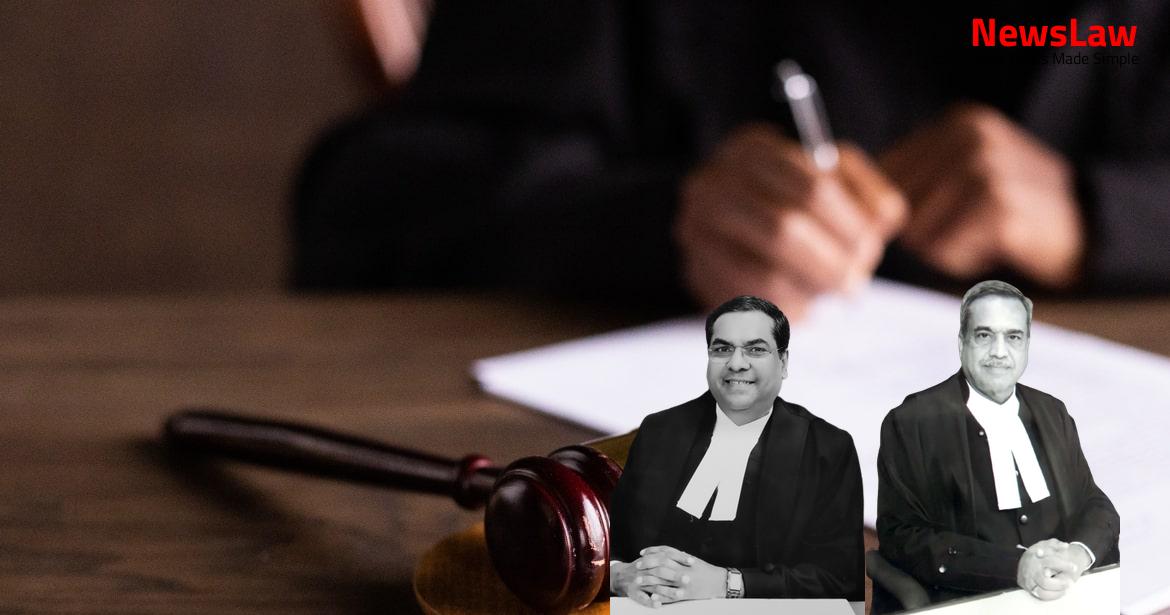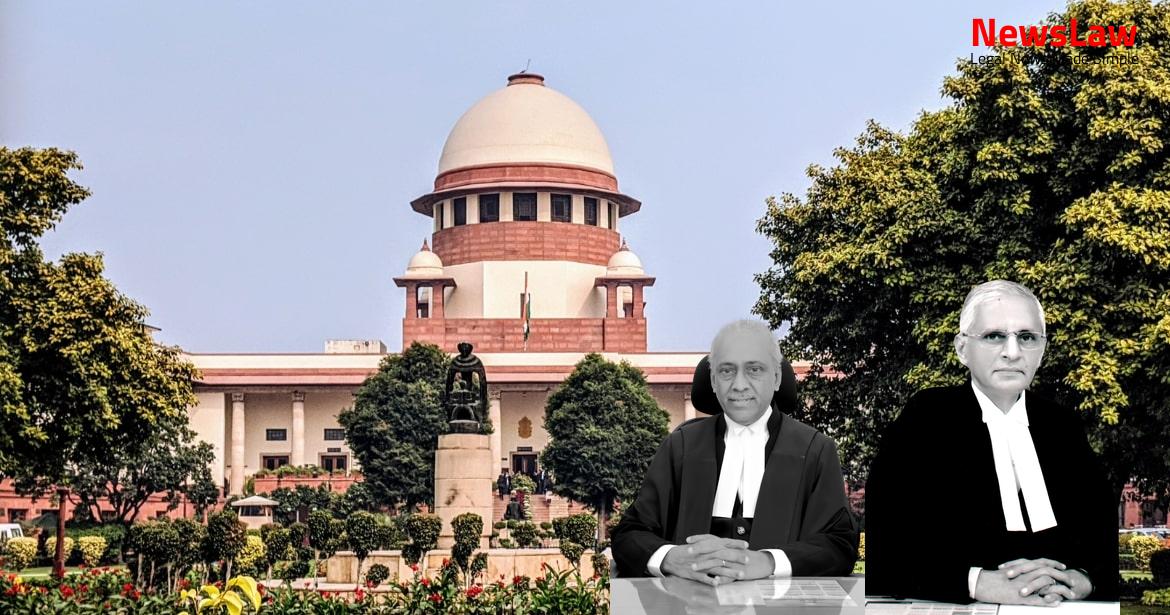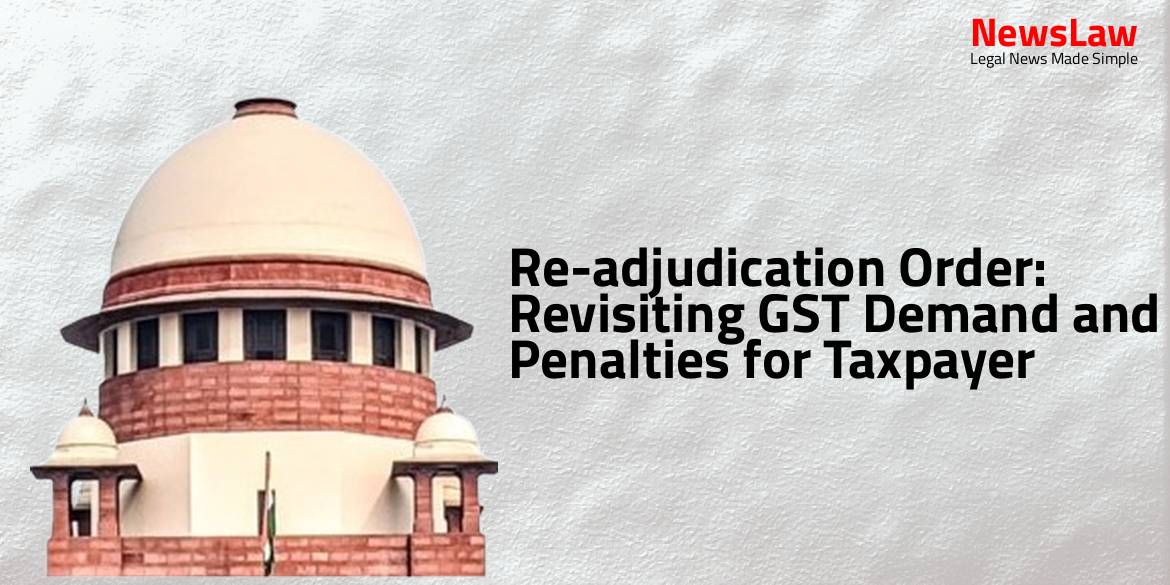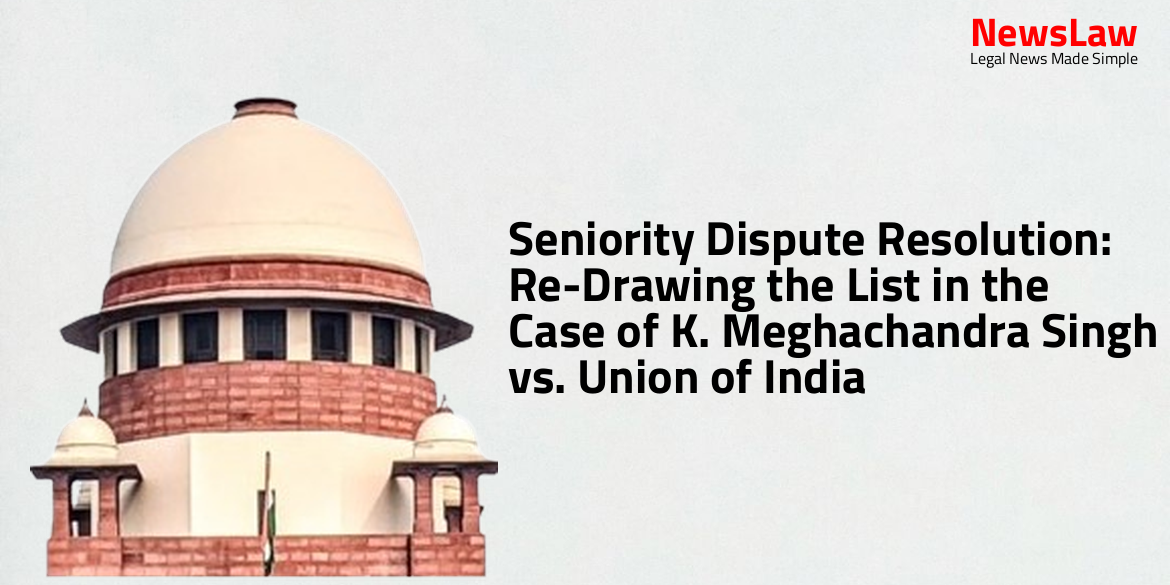Explore an in-depth analysis of the legal procedures involved in granting injunctions in property dispute cases. This summary focuses on the court’s meticulous examination of the process, emphasizing the significance of including all relevant parties and providing them with a fair opportunity to present their claims. Stay tuned to unravel the complexities of injunction orders in legal proceedings.
Facts
- The trial Court dismissed the interim injunction application in OS No 4709/2019 due to some of the suit schedule properties being owned by entities not party to the suit.
- The High Court partly allowed the appeals and directed a restraint order against the defendants for alienation of 1/7 share of the total plaint schedule properties.
- Respondents filed O.S. No. 4709/2019 seeking declaration of entitlement to their mother’s 1/7 share in the plaint schedule properties and prayed for partition and separate possession.
- Original plaintiffs filed IA No 1 in OS No 4709/2019 seeking ex-parte ad-interim injunction
- Plaintiff schedule properties range from A1 to A40
- Learned trial Court initially granted ex-parte injunction to restrain defendants from alienating properties
- High Court passed order regarding construction activities on schedule properties
- Third parties have appealed against High Court’s injunction granting 1/7 share in properties
- Third parties seek declaration that 2015 Settlement Deed is void ab-initio
Also Read: Legal Analysis on Conviction Based on Sole Testimony of Prosecutrix
Arguments
- Trial Court observed properties standing in the name of firms/trusts/companies not made parties to the suit
- High Court granted injunction without impleading appellants or giving them opportunity to be heard
- Trial Court passed reasoned order refusing to grant injunction
- High Court failed to dispose of applications to implead appellants as necessary parties before granting injunction
- Plaintiffs filed applications to implead appellants as necessary and proper parties to the suit
- Learned counsel representing the original plaintiffs/appellants before the High Court supported the common judgment and order passed by the High Court.
- Shri K.V. Vishwanathan, learned Senior Advocate, appeared for the appellants and supported the impugned judgment.
- Shri Saurabh Kansal, learned Advocate, appeared on behalf of the contesting respondent nos. 1, 20, and 23.
Also Read: Legal Analysis on Concurrent Sentences in Drug Trafficking Cases
Analysis
- The appellants claim right, title, or interest in properties A1 to A40 based on development agreements or other grounds.
- The appellants are not parties to the suit but are directly affected by the injunction granted by the High Court.
- The High Court granted injunction without hearing the appellants who claim rights in the mentioned properties.
- The properties in which the appellants claim rights include Schedule A6 (Part), A8, A9, A30, A32 (Part), A1, A4 (Part), A6 (Part), A11 (Part), A14, A24, A34 (Part), A35, A4 (Part), A34 (Part), A11 (Part), A25, A26, A27, A3, A28, A32, A37, and A38.
- Before granting any injunction, the appellants claimed right, title, or interest in the properties should have been given an opportunity to be heard.
- Injunction could not have been granted without impleading the appellants as defendants and giving them a chance to be heard.
- The High Court granted an injunction without hearing the appellants or including them as party-defendants, which is unsustainable.
- The original plaintiffs have pending applications to implead the appellants as necessary and proper parties in the suit.
Also Read: Legal Jurisdiction and Award Finality in Arbitration Dispute
Decision
- The High Court’s judgment granting injunction against alienation to the extent of 1/7 share in certain properties is quashed and set aside for specific mentioned properties.
- The trial Court is directed to decide on the application to implead the appellants as party-defendants in the case after giving them an opportunity to be heard.
- If the appellants are impleaded as party-defendants, the trial Court is to reconsider the interim injunction application for specific properties.
- The appeals are allowed in the above-mentioned extent, with no costs imposed.
Case Title: ACQUA BOREWELL PVT. LTD. Vs. SWAYAM PRABHA (2021 INSC 742)
Case Number: C.A. No.-006779-006780 / 2021



